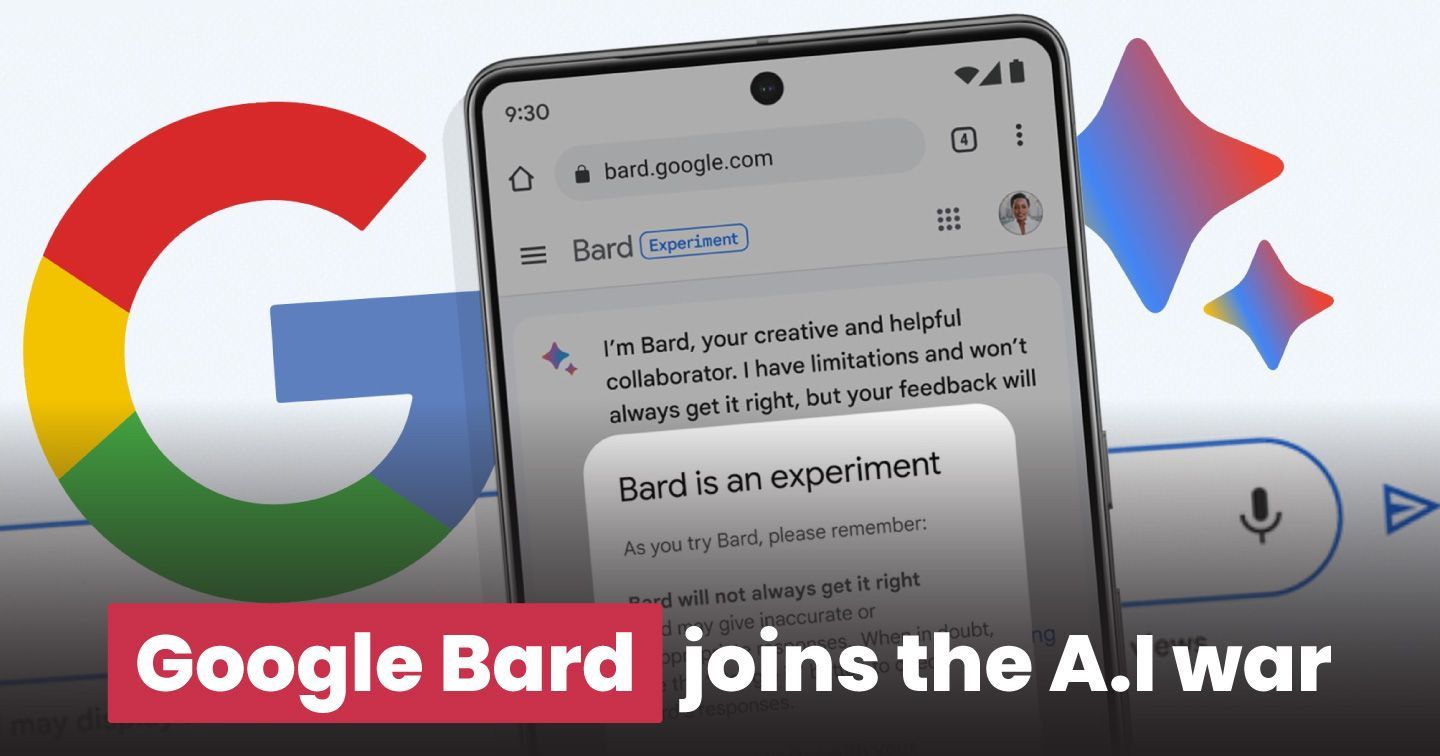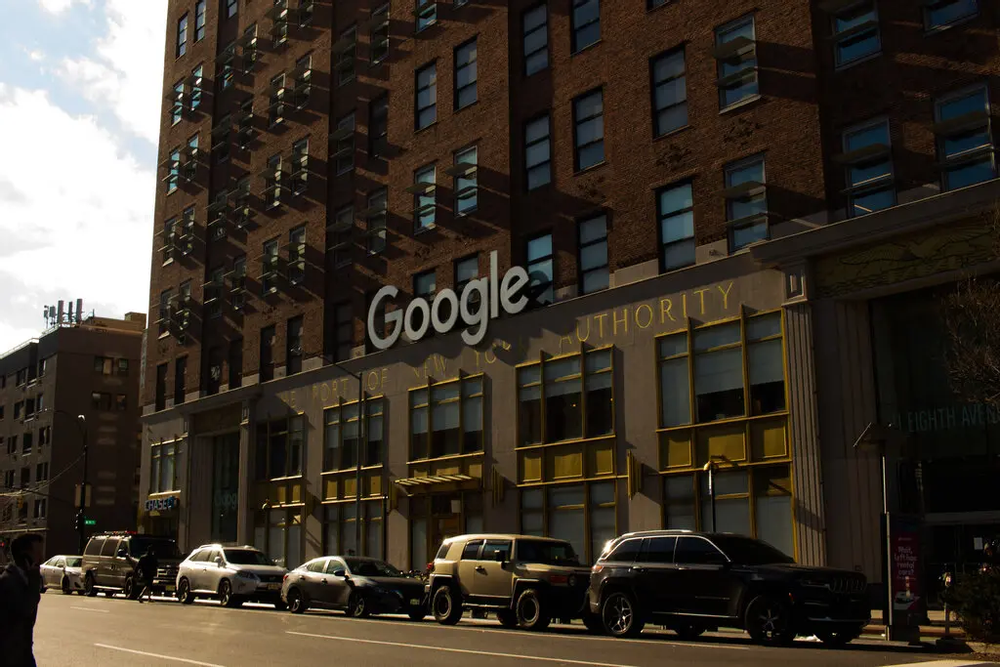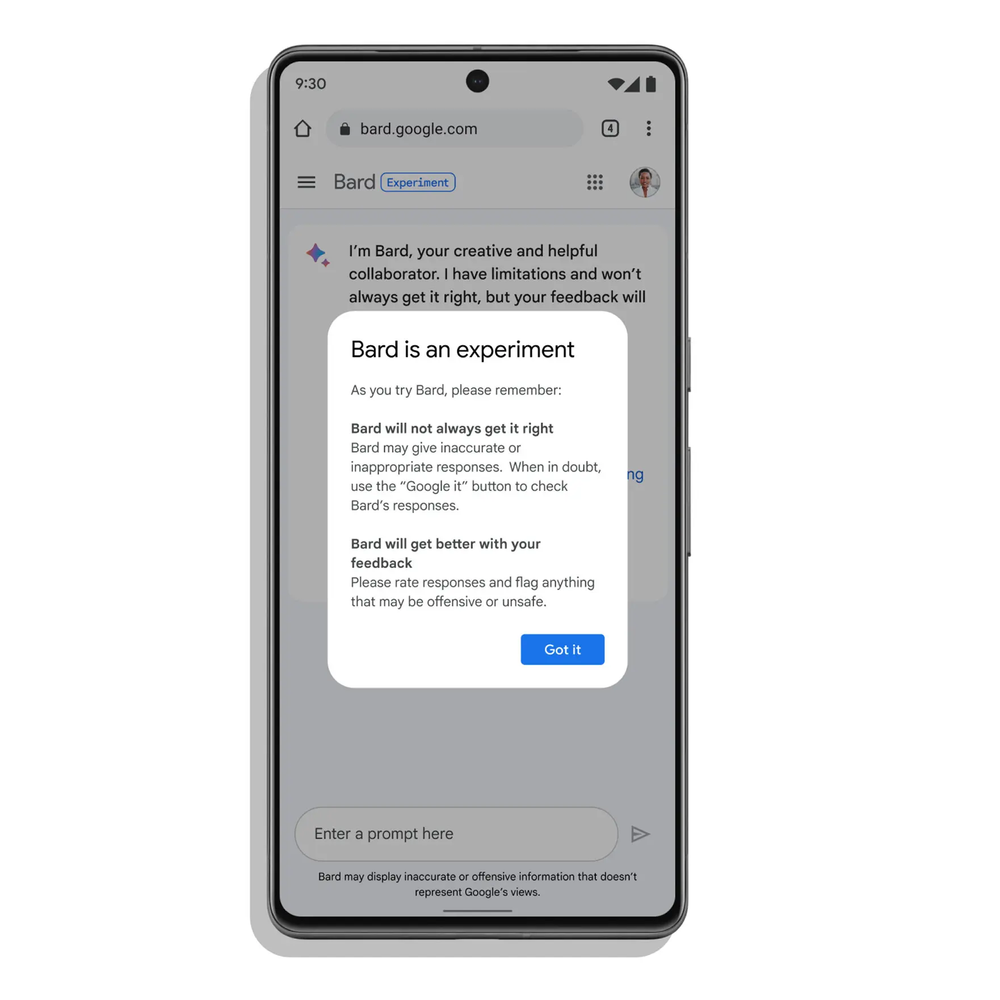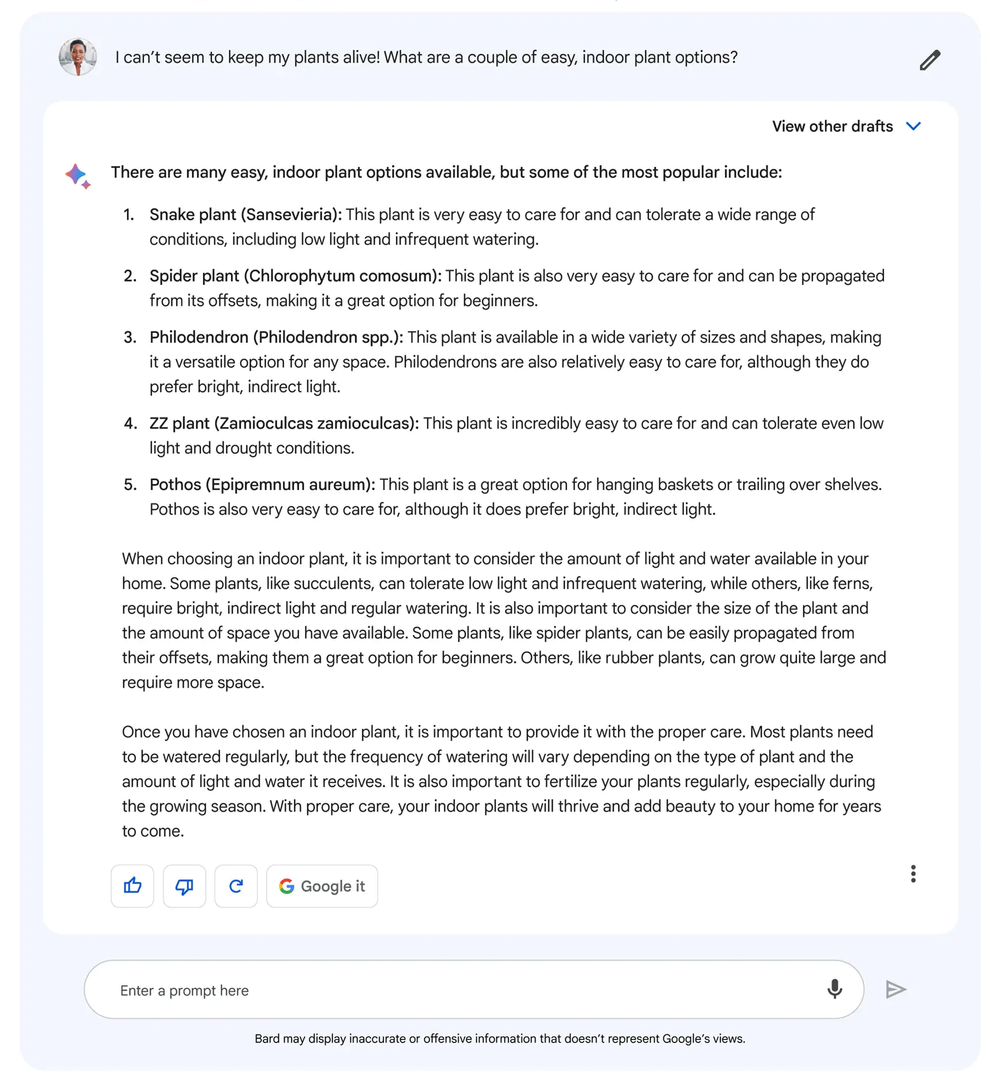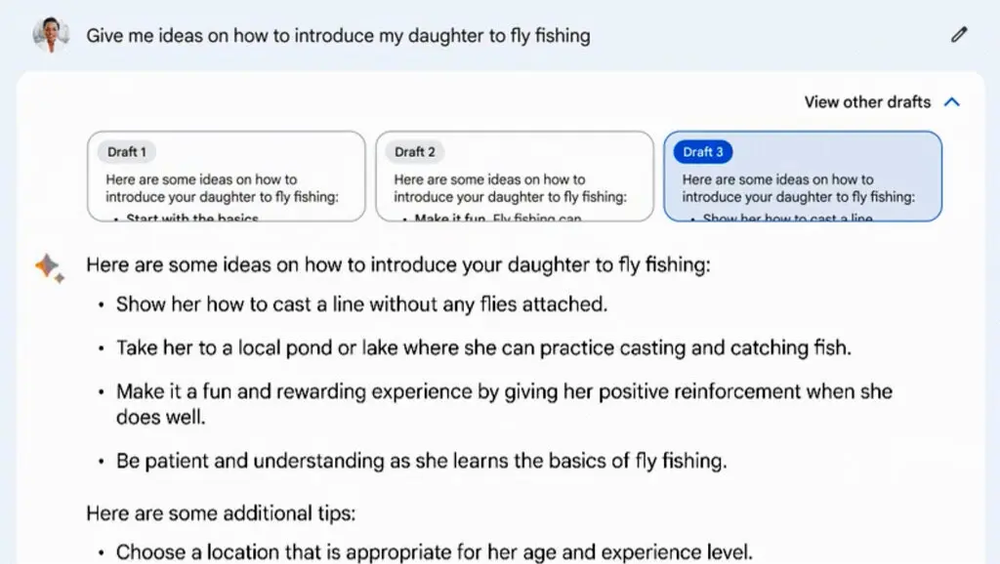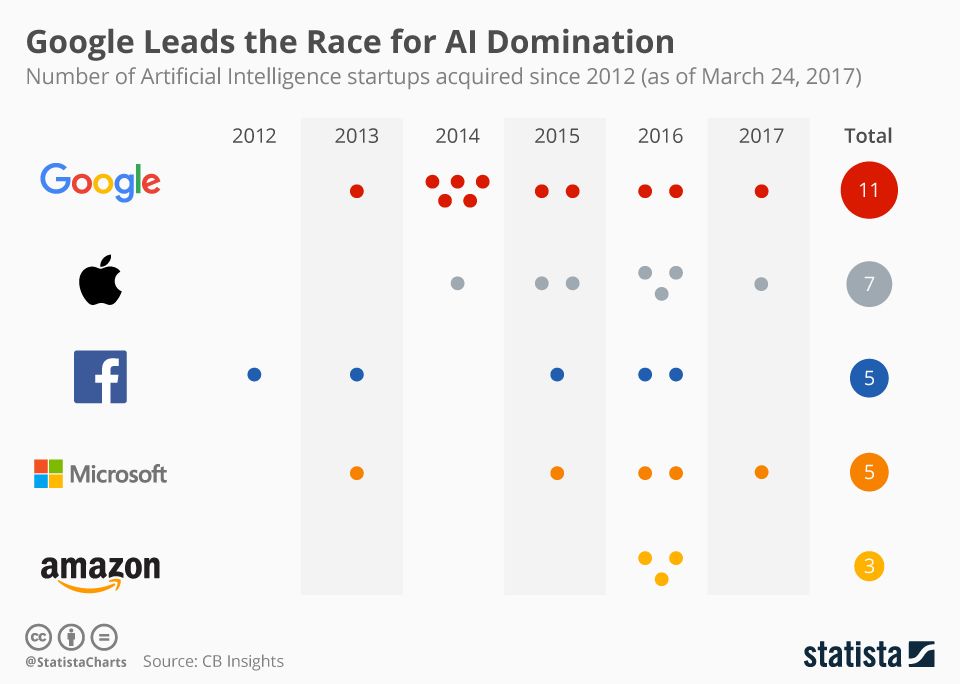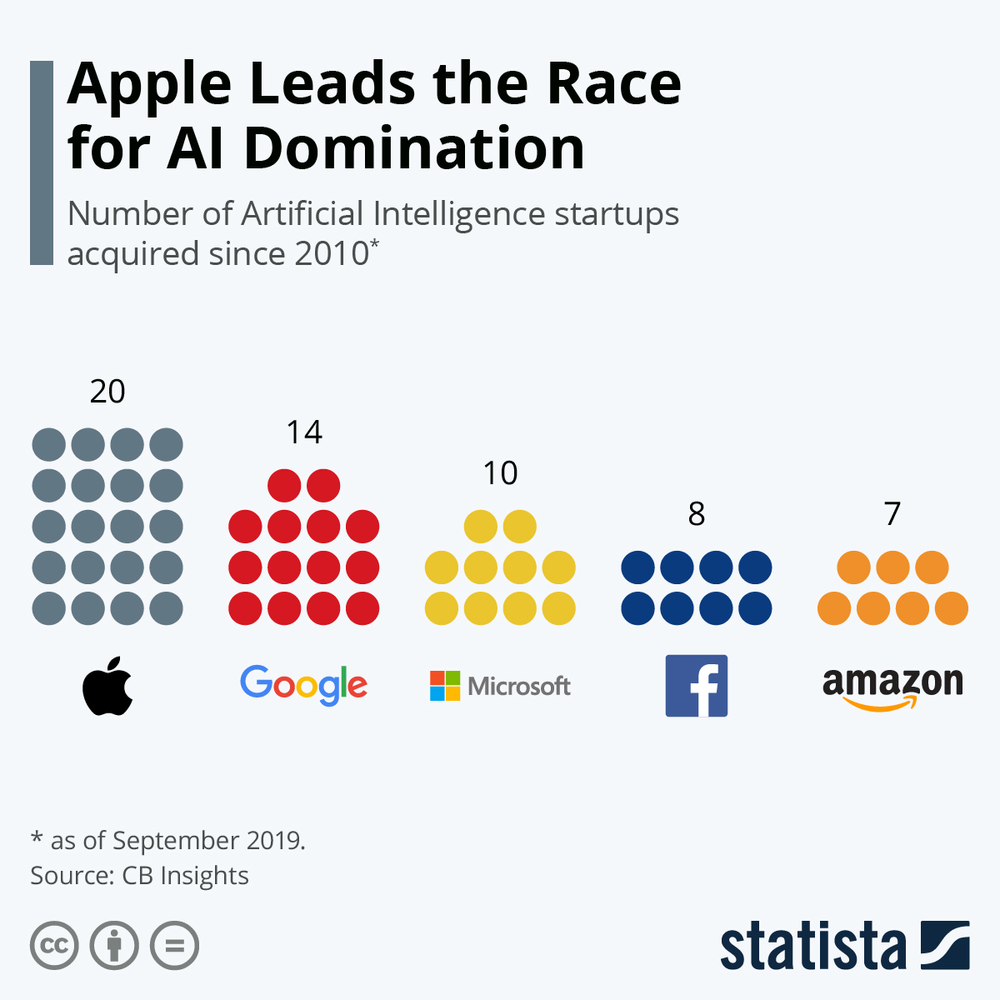The experimental chatbot from the world's largest search engine, Google, debuted not long after Microsoft's Copilot. On March 21, 2023, Google made a specific version of the Bard chatbot available. This is seen as a response to the technological behemoth's capacity to keep up its competitive edge in AI in the face of several competitors who present new challenges every day.
Xem bài viết tiếng Việt tại đây
Google has entered the artificial intelligence race by releasing its own experimental chatbot, Bard. Bard is a trained AI created based on the vast amount of information on the Internet and is said to be able to chat like a friend. Nearly 4 months have passed since OpenAI and then Microsoft officially started the AI race. According to the Google CEO in an interview, only a small percentage of customers in the US and UK may presently access the Bard chatbot. It is anticipated that Google will soon offer more to customers in various nations and languages.
The launch of Bard is regarded as Google's first transparent effort to "catch up" with the current chatbot craze started by OpenAI and Microsoft, and to show that Google is capable of supplying the same out-of-the-box technology. Because AI technology is getting mixed reviews, critics claim the "tech giant" is being more circumspect than its rivals.
Is Google cautious or slow in the AI race?
Google is taking a much more conservative approach than its competitors in releasing chatbot A.I
Based on technology that Google has been studying for 8 years, Bard is a chatbot version. Bard has started to appear on a Google-owned website that hasn't been a part of Google Search in a while. Although simultaneously wishing to protect Google's most lucrative division, this is regarded as the first step in the deployment of artificial intelligence.
In fact, Google released the first iteration of its AI-based chatbot later than several of its rivals. On March 14, 2023, the same day that Bard was made available, OpenAI unveiled GPT-4, its most cutting-edge technology. In the meantime, Microsoft's Bing search engine now features a comparable chatbot. This demonstrates how quickly AI technology can advance and transform a business that Google has dominated for more than two decades.
Despite being a "craze" and providing numerous benefits that cannot be disputed, many detractors claim that AI technology is not yet ready for widespread application. The AI chatbots from OpenAI and Microsoft, which use the same technology, have made some perplexing mistakes. For instance, Microsoft's Bing refers to itself as "Sydney" and engages in combative exchanges with queriers.
Google insists that Bard is still an "experiment"
Yet, several staff members complained that the firm wasn't paying enough attention to generative AI because Google's product introductions were slower than those of the competition. Some have attributed Google's tardiness to worries that the technology may harm the company's reputation if released in an unusable state.
Even though Google and other businesses have been studying and using AI technology for a while, and even though some of the computer science underpinning the most recent products was postulated decades ago, assistants chatbot theory consistently astounds its developers with what it is capable of.
The most recent version of ChatGPT (GPT4), which can describe scenes and explain what is happening in them, was released by OpenAI last week. This version shows off its "advanced inference capabilities." Some proponents of AI claim that human-level intelligence is imminent, while detractors claim that the hoopla obscures the dangers of this novel technology.
Yet the fact that Bard has been released now makes it apparent that it's a critical step in preventing a danger to Google's most lucrative division—its search engine business.
What does Google expect from Bard?
Bard has a similar look to its opponents
In any case, there is more activity and interest than ever before in AI technology, and technologists predict that it will eventually replace humans, provide new employment, and fundamentally alter how people use technology and the internet. In order to maintain their domination over the internet and technical advancements, major tech corporations like Google are attempting to ride the tide of competition.
On the surface, Bard resembles OpenAI's ChatGPT, a technology that has been tested by millions of users and is included in services like Snapchat's My AI and Microsoft's Bing search engine. When a user types a query into the text field, the bot promptly answers it. To avoid the bot from becoming hostile, as happened with Microsoft's Bing chatbot after the user had an hour-long conversation with it, the amount of inquiries and responses is restricted. Bard cannot presently write computer code, which is a significant disadvantage when compared to ChatGPT. ChatGPT also generates conflicting opinions because it occasionally provides creepy or extremely inappropriate comments.
Despite Bard's rather tardy entry into the chatbot space, it is still significant because Google has invested years in creating the underlying technology known as LaMDA, or Linguistic Model for Conversational Applications. The "tech giant" added that this is not a long-term replacement for the top search engine in the world at the same time.
Bard provides many different versions of potential answers to users' questions
When Google says that they are presenting Bard in a "responsible" manner and insists that Bard is still a "experiment," it is obvious that they are exercising some caution. Because to this, Google has been hesitant to grant users who register on the website more access. Bard's inbox also serves as a reminder that it is still in testing and can respond in an unexpected way. Bard is a stand-alone website rather than being linked to Google's search engine. There is a "Google it" button at the bottom of the response that opens a new tab with the standard Google search results page.
Bard is referred to by Google as a "creative collaborator" who may help increase output and spark innovation. Bard differs from other chatbots in part because it may provide several different answers. The user can then select the most appropriate query and pose a follow-up query.
How Google will balance utilizing Bard and making it useful while reducing its inclination to misrepresent facts, demonstrate bias, or otherwise needlessly influence remains to be seen. pole. Critics wonder why tech corporations appear to be in such a rush to include AI technologies they don't fully understand into chatbot products.
When the AI race is predicted to get even hotter, Google will be busier than ever
Google has no rival in the AI race in 2017
Given that it has invested countless sums in the creation of cutting-edge technologies, Google has long been considered the "king" of search and artificial intelligence. The digital juggernaut has incorporated innovations into its current offerings, including search engines, maps, and translation tools. Google has also written scholarly papers about the scientific breakthroughs occurring within the company and how incorporating A.I. might enhance current goods.
Along the way, though, Google's reaction to the AI wave occasionally lacked planning, and many of its actions were thought to be rather rushed. Google issued a "red alert" to make artificial intelligence (AI) the company's top priority starting in December 2022, immediately following OpenAI's release of ChatGPT at the end of November 2022.
But as of September 2019, Google no longer holds the leading position
Microsoft hosted a significant event to introduce the Bing chatbot at the beginning of February 2023, allowing journalists to use it before fast granting access to people who frequently use web browsers and search engines. Google debuted the Bard chatbot the day following the Microsoft event. The business announced that Bard will only be accessible for the upcoming few weeks at the moment. Shares of Google decreased 7% as a result. Experts wonder if the business is falling behind its rivals. A blog post that originally unveiled Bard raised issues that Google's technology wasn't ready for prime time and that Bard's launch was too quick, especially shortly after.
In the current situation, Google will need to put even more effort into demonstrating its supremacy to its rivals. Concerns about Google's operational lag are raised as Microsoft reveals that its own chatbot, named Bing after the search engine, would play a significant role in the company's search engine. Its main line of business grew.
Large language models, the technology underpinning chatbots like Bard and ChatGPT, have been utilized in the search for years by firm engineers to deliver direct answers to queries rather than links to or snippets from other websites. Several Google employees contend that chatbots represent the next iteration of the company's main product, which generates the majority of the company's revenue from search advertising.
But, millions of users have so far used chatbots from Google's rivals to compose essays, reports, and even computer code. Products developed employing AI techniques, such as OpenAI's DALL-E and StabilityAI's Stable Diffusion, have been widely discussed on social media for months, surprising and astonishing people. afternoon. A.I. businesses are receiving billions of dollars from venture capitalists, thus the AI race will witness many unexpected occurrences.
Source: The New York Times; Washington Post
Quan Dinh H.





